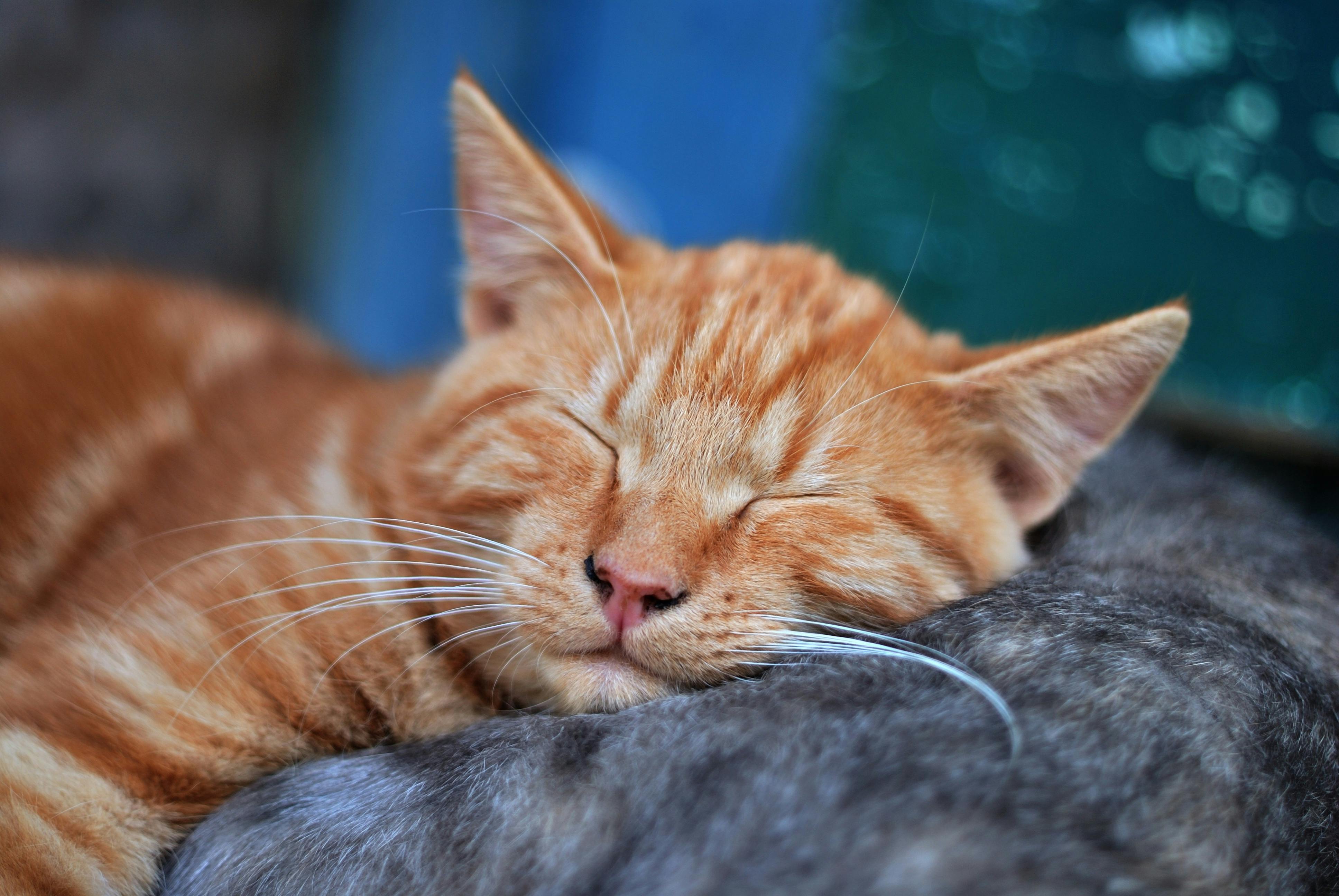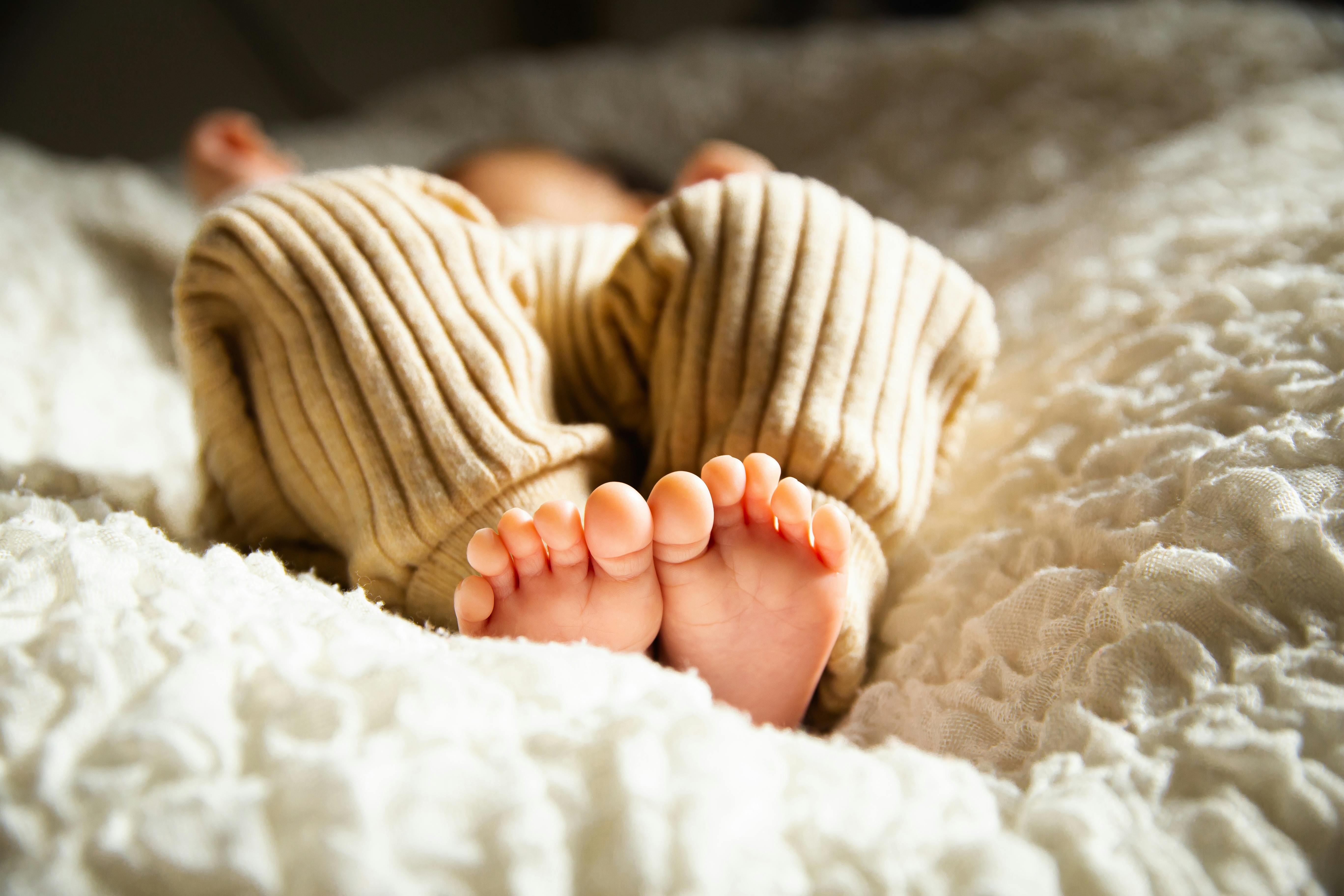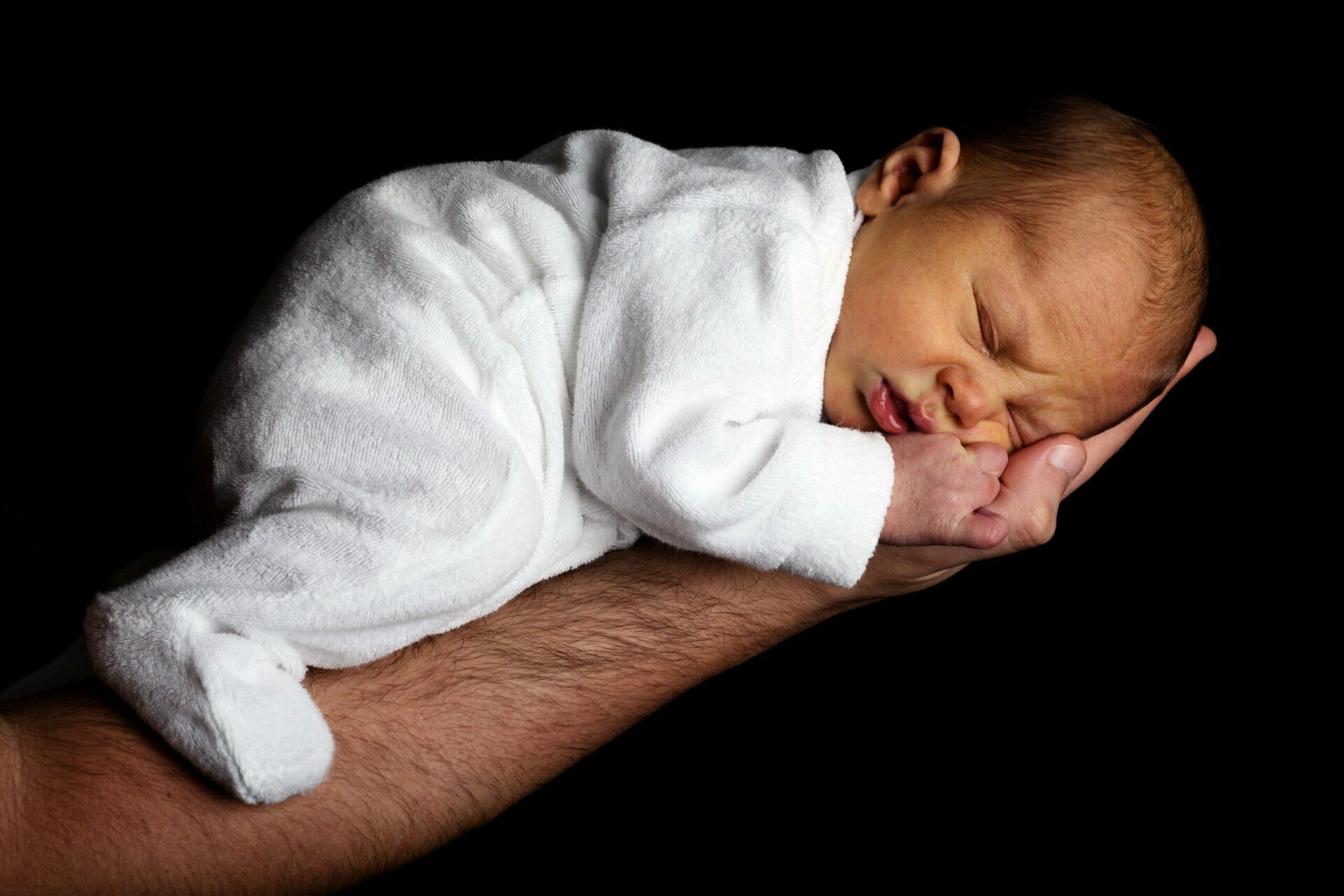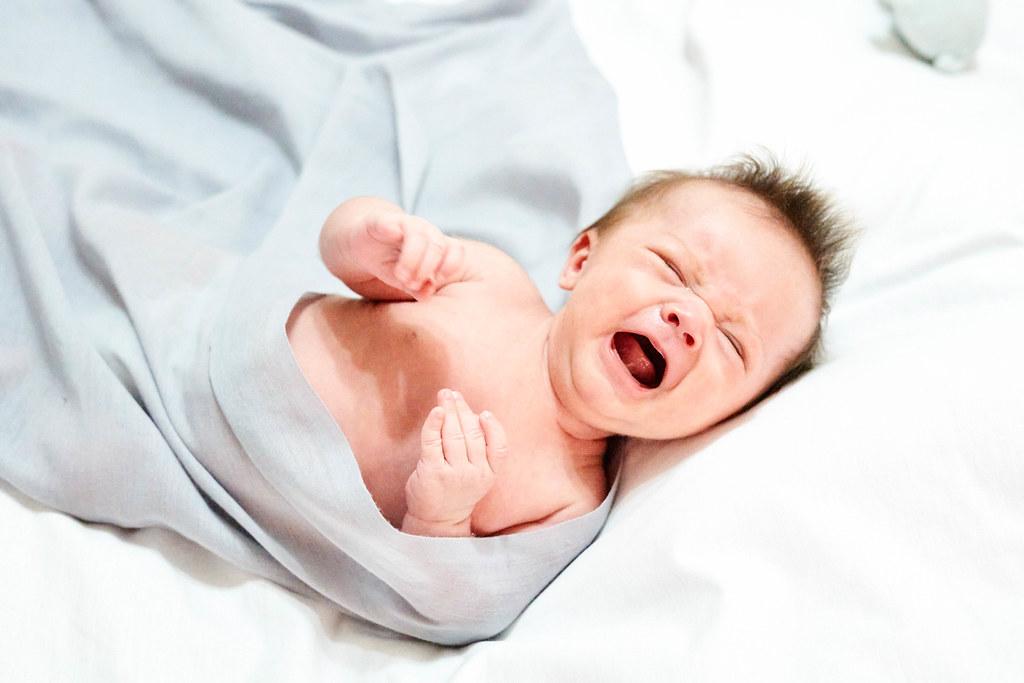Sleep apnea is a serious sleep disorder that can have a significant impact on the health of your baby. If you’re concerned that your baby may have sleep apnea, our Does My Baby Have Sleep Apnea Quiz can help you determine if further evaluation is needed. This quiz evaluates various signs and symptoms of sleep apnea in infants, such as snoring, mouth breathing, pauses in breathing, and others. By answering a few simple questions, you can get an idea of whether your baby may need to be evaluated by a doctor for sleep apnea.Sleep apnea is a sleep disorder characterized by pauses in breathing or shallow breaths while sleeping. It can cause disrupted sleep for the sufferer, leading to excessive daytime drowsiness, fatigue, headaches, mood swings, depression, irritability and difficulty concentrating. In some cases, it can also cause high blood pressure and an increased risk of stroke.
Symptoms of Sleep Apnea in Babies
Sleep apnea is a condition that can occur in babies, infants and young children. It can cause a disruption in their breathing patterns during sleep and can be potentially dangerous. Some signs and symptoms of sleep apnea in babies include frequent pauses in breath, snoring, restlessness during sleep, gagging or choking during sleep, and excessive sweating during night time.
It is important to be aware of these signs and symptoms so that if your baby does have sleep apnea it can be properly treated. If left untreated, it can lead to health issues such as poor weight gain or development delays. Some other signs to look out for are changes in skin color while sleeping, difficulty feeding or trouble sleeping for long periods of time.
If you suspect your baby has sleep apnea it is important that you seek medical attention right away. Your doctor will likely order a polysomnogram test which helps to record your baby’s sleeping patterns and assess for any disruptions in breathing. Based on the results of the test your doctor will determine the best course of treatment for your baby’s sleep apnea.
Treatment for sleep apnea in babies may involve lifestyle changes such as changing the sleeping position or reducing exposure to allergens or irritants that may be causing breathing problems while they are asleep. In more serious cases, surgery may be necessary to treat the underlying cause of the sleep apnea.
It is important to be aware of the signs and symptoms of sleep apnea in babies so that if it does occur it can be properly treated before it leads to any serious health issues. Seek medical attention right away if you suspect your baby may have this condition so that an appropriate treatment plan can be put into place.
Causes of Sleep Apnea in Babies
Sleep apnea is a sleep disorder that can affect babies as well as adults. It is characterized by pauses in breathing during sleep. The causes of sleep apnea in babies can vary from mild to severe, and can be caused by several different factors.
The most common cause of sleep apnea in babies is due to an immature or underdeveloped respiratory system. Babies’ respiratory systems are still developing, and the process of breathing may be interrupted due to this lack of development. This can cause babies to pause their breathing during sleep, leading to episodes of sleep apnea.
In some cases, the cause of sleep apnea in babies may be due to an anatomical problem or obstruction. This could include enlarged tonsils or adenoids, a deviated septum, or a narrowed airway due to the shape of the baby’s head and neck. In these cases, surgical intervention may be necessary in order for the baby to breathe normally during sleep.
Another possible cause of sleep apnea in babies is obesity or being overweight. Excess weight can put extra strain on the respiratory system and lead to pauses in breathing during sleep. It is important that parents ensure that their children are maintaining a healthy weight for their age and size so as not to put them at risk for developing sleep apnea.
Finally, there may be other medical conditions that can lead to episodes of sleep apnea in infants such as pulmonary diseases or neurological disorders like cerebral palsy or epilepsy. Parents should consult with their pediatrician if they suspect that their child might have any underlying medical condition that could be causing episodes of sleep apnea during the night.
No matter what the cause of your baby’s episodes of sleep apnea, it is important that you seek treatment right away in order to ensure your baby’s health and safety while sleeping at night.
How to Prevent Sleep Apnea in Babies
Sleep apnea is a serious sleeping disorder, even in babies. It can cause a baby to stop breathing for brief periods of time during sleep. This can lead to health problems, and it is important to take steps to prevent sleep apnea in babies. Here are some tips for preventing sleep apnea in babies:
1. Make sure the baby’s crib is a safe sleeping environment. Be sure that there are no loose blankets, pillows or stuffed animals that could obstruct the baby’s breathing.
2. Place the baby on their back when they go to sleep. Babies should always be placed on their backs when sleeping, as this helps reduce the risk of sudden infant death syndrome (SIDS).
3. Monitor the baby’s weight gain and growth rate. If your baby is not gaining enough weight or not growing at a normal rate, talk to your doctor about potential causes, including sleep apnea.
4. Avoid overfeeding or underfeeding your baby. Overfeeding can increase the risk of sleep apnea, while underfeeding can lead to poor weight gain and slow growth rate which may be associated with sleep apnea as well.
5. Avoid smoking around your baby and keep them away from secondhand smoke as much as possible, as this can increase their risk of developing sleep apnea or other respiratory problems.
6. Seek immediate medical attention if you suspect your baby has sleep apnea or if they have any other health issues that could affect their breathing during sleep, such as a cold or asthma attack

Treatments for Sleep Apnea in Babies
Sleep apnea is a sleep disorder that can cause frequent pauses in breathing during sleep, with potentially serious consequences for babies. Treatment of sleep apnea in babies includes lifestyle changes, medical treatments, and surgical treatments.
Lifestyle changes are the first line of treatment for sleep apnea in babies. This may include avoiding large meals before bedtime, changing the baby’s sleeping position, and eliminating environmental factors that may be causing or exacerbating the condition.
Medical treatments can include medications to help regulate breathing or to reduce inflammation in the airways. In some cases, oxygen supplementation may be necessary to help the baby breathe more easily.
Finally, surgical treatments may be necessary to treat sleep apnea in babies. This may involve removing enlarged tonsils and adenoids or repositioning the jaw and tongue to improve airway passage. Some babies may also need to wear a device called a continuous positive airway pressure (CPAP) machine while sleeping to help them breathe more easily.
No matter what treatment is chosen for a baby with sleep apnea, it is important that parents work closely with their pediatrician or a specialist to ensure that the best possible care is being provided for their child. With proper treatment, most babies with sleep apnea will be able to lead healthy and happy lives.
Complications of Untreated Sleep Apnea in Babies
Sleep apnea is a serious sleep disorder that can have serious health consequences if left untreated. In babies, untreated sleep apnea can lead to a variety of complications, including poor growth, developmental delays, and even death. The most serious complication of untreated sleep apnea in babies is Sudden Infant Death Syndrome (SIDS). SIDS is the sudden and unexpected death of an infant under one year of age and can be caused by undiagnosed and untreated sleep apnea.
Babies with untreated sleep apnea may also experience poor growth. This is due to the fact that breathing pauses associated with sleep apnea deprive the baby’s body of oxygen, which can interfere with normal growth and development. Poor growth can result in failure to thrive, which is often seen in babies with sleep apnea.
In addition to poor growth, babies with untreated sleep apnea may experience developmental delays. As mentioned above, oxygen deprivation associated with sleep apnea can interfere with normal brain development. This can lead to delays in motor skills, speech, and cognitive development. It can also cause behavioral issues such as hyperactivity or difficulty focusing on tasks.
Finally, babies who have had prolonged episodes of sleep apnea may develop chronic lung disease or other respiratory problems due to the constant strain on their lungs from breathing pauses during sleep. This chronic lung disease can be very serious and could lead to long-term health complications for the baby.
It is important that parents seek medical attention if they suspect their baby has sleep apnea so that it can be properly diagnosed and treated before it leads to any serious complications. Early diagnosis and treatment are key for ensuring the health and well-being of babies who suffer from this condition.
When to See a Doctor for Sleep Apnea in Babies
Sleep apnea is a common sleep disorder that can affect babies, resulting in pauses in breathing during sleep. Although it’s usually mild, it can be more serious and even life-threatening in rare cases. If you think your baby may be suffering from sleep apnea, it’s important to seek medical attention right away.
The most common signs of sleep apnea in babies include noisy breathing during sleep, frequent waking up at night, and difficulty in staying asleep. If your baby is exhibiting any of these symptoms or if you are worried about their breathing while they are sleeping, then it is important to take them to see a doctor immediately.
Your doctor may recommend further testing such as an overnight sleep study or an x-ray of the chest. This will help them diagnose the condition and determine the best course of treatment for your little one. Treatment options may include lifestyle changes such as avoiding smoking around the baby or using a humidifier while sleeping, as well as medications to help them breathe more easily during sleep.
If you are concerned about your baby’s sleeping patterns or are worried that they might have sleep apnea, don’t hesitate to seek medical attention right away. Early diagnosis and treatment can help ensure that your little one gets the restful nights that they need to grow and develop normally.

Conclusion
Sleep apnea is a serious condition that can lead to serious complications if left untreated. It is important to be aware of the signs and symptoms of sleep apnea in babies so that parents can seek medical advice and treatment. Taking a Does My Baby Have Sleep Apnea Quiz can help parents determine the likelihood that their baby may have sleep apnea and take the necessary steps to ensure their baby gets the treatment they need. If you suspect your baby may have sleep apnea, it is important to speak with your healthcare provider for a diagnosis and treatment plan.
Remember, sleep apnea is a serious condition that requires medical intervention. Early detection and treatment are key to ensuring your baby’s health and wellbeing. By taking the Does My Baby Have Sleep Apnea Quiz, you can get an idea of whether or not your baby may have sleep apnea and take the necessary steps towards getting them the help they need.




